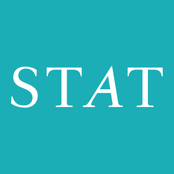 On their final day in office, the outgoing Trump Administration, through the Centers for Medicare and Medicaid Services (CMS), announced a new proposal that would undermine key patient protections in Medicare's prescription drug program. Indeed, policy outlined in a new Request for Applications (fact sheet) would allow Medicare Part D plans that participate in the third year of the Center for Medicare and Medicaid Innovation’s (CMMI) Part D Payment Modernization (PDM) Model to limit the drugs they cover, including denying patients access medications used to manage complex conditions such as cancer, mental illness, HIV-AIDS, epilepsy, Parkinson’s, and organ transplantation. The Biden Administration will have authority to determine whether the new policy is ultimately implemented.
0 Comments
 A recent paper in the American Journal of Managed Care confirms that patients who are prescribed medications in Medicare’s “six protected classes” are consistently utilizing lower-cost generics, despite arguments from insurance companies who have said they have limited tools to contain costs for these treatments. Indeed, the authors concluded that generic dispensing rates (GDR) in the protected classes are often much higher than their non-protected counterparts — and are at least consistent with the dispensing rates among other classes of drugs. In fact, the paper suggests that plans that dispense generics at a lower rate do so to capture larger rebates from drug manufacturers, rather than to maximize access for their beneficiaries and minimize what they would pay out-of-pocket. The team of researchers, composed of experts from the RAND Corporation, IQVIA, the University of Southern California, and the Schaeffer Center for Health Policy & Economics, found that GDRs for the protected classes studied are well in line with prescription drugs in general. They studied 10 classes of drugs, including three of the six protected classes — antidepressants, anticonvulsants, and antineoplastics. In 2016, standalone Part D plans (PDP) had an overall GDR of 88 percent and Medicare Advantage Prescription Drug (MAPD) plans had a GDR of 90 percent, respectively. Antidepressants, the researchers found, had GDRs of between 97 and 99 percent in most plans, antineoplastics had GDRs of between 81 percent and 88 percent, and anticonvulsants between 88 and 94 percent. The variation between plans may be due to payers preferring non-generic drugs in some cases — in fact, the researchers write, the variation may strongly suggest that they are doing so to seek rebates, while patients pay cost-sharing based on the full price of the drug. It also suggests that insurers use leverage in formulary decisions to benefit themselves, not the patients they are supposed to serve. While insurers have pushed for the ability to further restrict drug formularies in the protected classes, it is clear that they already have leverage in their dispensing patterns. Ending the protected classes, as some have suggested, would simply further empower insurers to restrict access to needed medications likely harming patients.  A pair of recent analyses offer new evidence that Medicare’s protected classes policy does not drive higher costs for the program and beneficiaries, despite attacks from insurance companies who have argued they should be allowed to restrict access to these needed medications. Specifically, the two analyses -- one undertaken by Milliman and the other by BluePeak Advisors -- show that the six protected classes have similar cost patterns to non-protected drugs. Among the highlights of the respective analyses:
These analyses are consistent with a recent study from Avalere, further refuting statements from plans and pharmacy benefit managers (PBM) that they cannot manage utilization of protected class drugs. In fact, the analyses show that drug costs have remained stable in the protected classes and generic utilization has increased – meaning plans are holding costs down as the protected class ensures that individuals with difficult-to-manage conditions are able to get the medication they need.  This post originally appeared in Fierce Healthcare on July 16, 2019. A new study found a Trump administration proposal to rein in prices on certain drugs under Medicare Part D would have made drugs less accessible to patients. The study, published Tuesday in the Journal of the American Medical Association, explored price hikes over a five-year span for products in protected classes. Medicare Part D requires plans to add to their formularies products in six classes that include antidepressants, antipsychotics and immunosuppressants.  This post originally appeared in STAT News on May 16, 2019 WASHINGTON — The Trump administration is backing off a controversial proposal to chip away at existing safeguards that require Medicare to cover all drugs for conditions like depression and AIDS. The initial proposal, which would have allowed private Medicare plans to refuse to pay for certain drugs for chronic conditions that spiked in price, was met with widespread criticism almost as soon as it was proposed last November. The Trump administration had suggested the change would help lower drug prices by giving private Medicare plans more leverage over high-cost drugs. But patient advocates and drug makers said it would jeopardize patient care in life-threatening situations.  This post originally appeared in Inside Health Policy on May 16, 2019. Two consecutive administrations have failed to follow through with proposals to weaken Medicare Part D coverage protections in six drug classes. CMS again scrapped the idea in a final Part D rule it issued Thursday (May 16). When it proposed the rule last November, the agency had called for letting Part D plans exclude drugs in protected classes from formularies when their makers raise prices faster than inflation or when drug companies make new formulations of drugs already on the market. The proposed rule also called for allowing Part D plans to more broadly use step therapy and prior authorization for protected class drugs.  This post originally appeared in POLITICO on May 17, 2019. Assorted health care interests expressed relief Thursday following CMS' decision not to move forward with changes that would have let Medicare Part D and Medicare Advantage plans limit coverage of drugs in six categories known as “protected classes.” Some of the interests even expressed optimism policymakers won’t try to change the benefit again now that both Donald Trump and Barack Obama each failed to generate the needed political support for modification. Under the status quo, Part D plans must cover all drugs in the six protected classes: antidepressants, anti-psychotics, anticonvulsants, immunosupressants for transplant rejection, antiretrovirals and cancer drugs. As designed by Congress, Medicare’s six protected classes policy guarantees access to treatments for Medicare patients with the most complex conditions, including cancer, HIV/AIDS, mental health conditions, epilepsy, organ transplants, and Parkinson’s  Washington D.C. — The Partnership for Part D Access, a broad-based coalition of health care stakeholders including over 20 diverse patient advocacy organizations, commended the Centers for Medicare and Medicaid Services (CMS) for not finalizing a proposal that would have substantially weakened Medicare’s six protected classes policy.  The Centers for Medicare and Medicaid Services (CMS) issued a final rule that makes no changes to the current six protected classes policy — completely eliminating the potentially damaging changes included in a proposed rule released several months earlier. Instead, the agency finalized current practices that allow for prior authorization (PA) and step therapy (ST) to only be used within the protected classes for new starts. Also consistent with current practice, antiretrovirals remain excluded from utilization management altogether. Importantly, CMS did not finalize exceptions for new formulations of existing drugs or drugs whose prices increase above the urban consumer price index (CPI-U). “Medicare beneficiaries with the most complex, chronic conditions are breathing a sigh of relief,” Chuck Ingoglia, the Executive Director of the Partnership said in a statement. “This rule cements the protected classes policy as an essential patient safeguard in Medicare’s prescription drug program." The Centers for Medicare and Medicaid Services (CMS) issued a final rule that makes no changes to the current six protected classes policy — completely eliminating the potentially damaging changes included in a proposed rule released several months earlier. Instead, the agency finalized current practices that allow for prior authorization (PA) and step therapy (ST) to only be used within the protected classes for new starts. Also consistent with current practice, antiretrovirals remain excluded from utilization management altogether. Importantly, CMS did not finalize exceptions for new formulations of existing drugs or drugs whose prices increase above the urban consumer price index (CPI-U). “Medicare beneficiaries with the most complex, chronic conditions are breathing a sigh of relief,” Chuck Ingoglia, the Executive Director of the Partnership said in a statement. “This rule cements the protected classes policy as an essential patient safeguard in Medicare’s prescription drug program."  FOR IMMEDIATE RELEASE May 7, 2019 Contact: Shea McCarthy smccarthy@thornrun.com (202) 285-3866 Washington D.C. — The Partnership for Part D Access, a broad-based coalition of health care stakeholders including over 20 diverse patient advocacy organizations, applauded the House Appropriations Committee for their report on the fiscal year (FY) 2020 Labor-HHS-Education spending measure, which raises concerns with a proposal from the Centers for Medicare and Medicaid Services (CMS) to weaken Medicare’s six protected classes policy.
|
AuthorWrite something about yourself. No need to be fancy, just an overview. Archives
September 2023
Categories |
Learn more |
What's New? |
|
